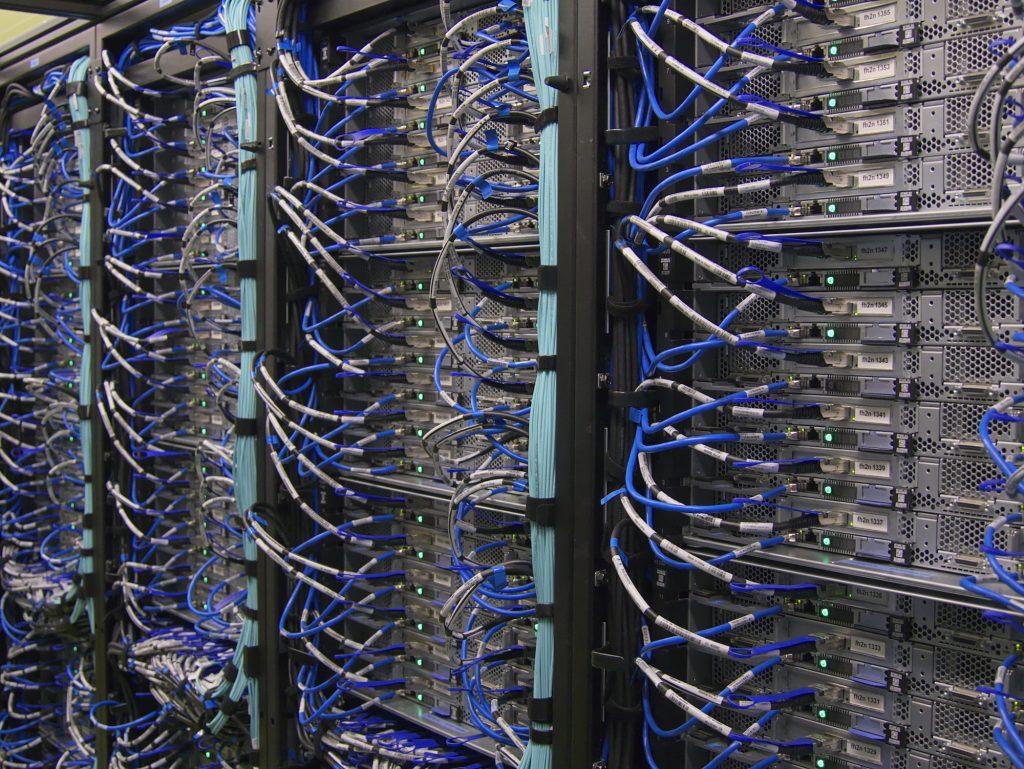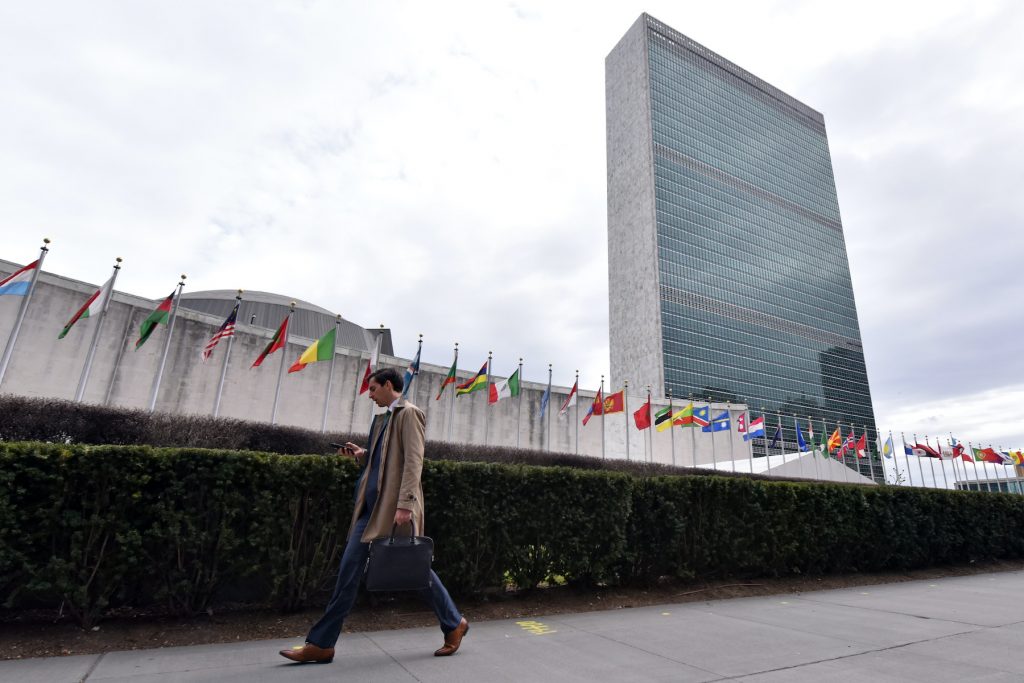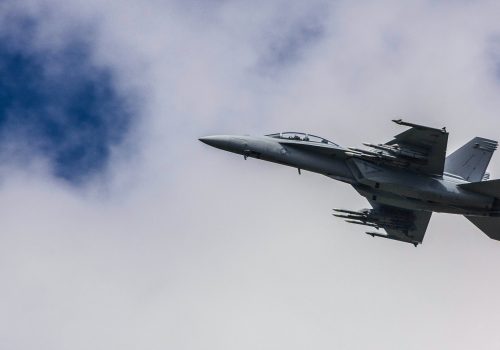The full text of this paper is split across the various articles linked below. Readers can browse in any order. To download a PDF version, use the button below.
One large question casting a shadow over the future of global governance, writ large, is how to overcome the steady unraveling of existing economic and political institutions and agreements. Not only are longstanding economic and political institutions fraying, but the resurgence of major-power geopolitical competition is threatening accords underpinning strategic stability. The current undoing of the Intermediate- Range Nuclear Forces (INF) Treaty, US threats to withdraw from the Open Skies Treaty, and the uncertain fate of the New Strategic Arms Reduction Treaty (START) US-Russia agreement, which expires in 2021, are cases in point. These geopolitical dynamics make the urgency of establishing new norms, standards, and codes of conduct for emerging, game- changing technologies ever more problematic.
Another underappreciated factor is the technological imperative: human history suggests if a technology is created, it will be used—and with military applications, it will be deployed, often with unintended consequences. Often, only after catastrophic results—such as poison gas in WWI or the atomic bomb in WWII—do nations agree to ban their use.
The risks and glaring inadequacy of rules and norms with regard to outer space is emblematic of the troubling global- governance deficit amidst a surfeit of emerging disruptive technologies. How to create norms, rules, and codes of conduct (or decide limits or bans on use) for what, in many cases, may be game-changing technologies—many of them dual use—is filled with more questions than answers. In too many areas of technology, as with space, there is not even a definition of what constitutes an act of war or a violation of national sovereignty. What is the threshold for acts of war or violations of sovereignty with regard to space? Is it jamming temporarily, disrupting, or physically destroying a satellite? Then there is the whole question of the role of robots and drones. Given the increasingly ubiquitous use of military drones—and the low bar of inexpensive drones for non-state actors—what are the rules for warfare? What, if any, are battlefield rules for robots, or techno-enhanced human super soldiers? What accountability or constraints are there for accidental destruction or civilian deaths by semiautonomous or autonomous weapons? Moreover, there is no dearth of difficult ethical questions with regard not just to autonomous weapons, but to AI and biotech in general. What are the limits on synthetic biology, and techniques like CRISPR to alter or create life?
Cyber-commons governance
Look no further than the engine and foundation of all electronic communications, the beleaguered lnternet, for an anomalous example of minimalist and ad hoc governance that may be applicable to space: both are global commons created by technology. The Internet has been managed by a quasi- governmental Internet Corporation for Assigned Names and Numbers (ICANN), a nonprofit corporation and multi- stakeholder entity governed by an international board. It has exercised responsibility for allocating Internet Protocol (IP) address space, protocol identifiers, generic and country codes, domain names, and root-server system functions—in short, the stable operation of the Internet. It has global regulatory authority, despite no treaty defining its jurisdiction.
But, ICANN has no capacity to address the multifarious uses and malign abuses in the cyber domain, which its creators never imagined, and which remain both undefined and unaddressed. What constitutes cybercrime or cyber war, particularly in a global commons that largely resides in the private sector? There are no commonly accepted standards. Cybertheft or cyber ransom may be considered a crime. What of cyber industrial theft or cyber-intelligence hacking? Does hacking to deny service temporarily constitute a crime or an act of war; does government-sponsored theft of defense industrial intellectual property qualify? How about disabling an electric grid? Or, does an act of cyber disruption or damage have to physically destroy property and/or kill or injure human beings to qualify as an act of war? Does a cyberattack on a NATO country or Japan trigger NATO Article 5 with regard to the United States?
Cybersecurity threats are only one of the pressing governance concerns in the area of digital commerce. Though e-commerce is already a major component—and the fastest-growing one—of global trade, there are only partial and incomplete rules, varying from one regional or bilateral trade accord to the other, and an increasing risk of fragmented digital regimes. Moreover, the overarching governance of use of data, sharing and/or commercialization of private content, storage of data, and where to draw the line on privacy—in the face of the explosion of social media with a widening variety of nefarious, sometimes lethal, consequences—all lack any globally agreed norms or minimal standards.
The digital economy, now a mature technological sector, is a prime example of how even established technologies can race well ahead of governance. By some estimates, global data flows grew forty-five times from 2005 to 2014, exponentially faster than flows in trade or finance. The US Department of Commerce found that in 2014, more than half of US trade in services was digitally delivered, and a Japanese METI report assesses that 50–56 percent of all trade in services is ICT enabled. Digital commerce already accounts for roughly 20 percent of global trade, and is projected to increase to 25 percent by 2025. This percentage of total trade is likely to accelerate by an order of magnitude over the coming decade. Consider the explosion of e-payments, the downloading of music, games, and books, the billions of devices to be connected by the IoT, or the impact of 3D printing, where computer designs will be widely downloaded and actual products will be produced by consumers. Internet traffic continues to advance rapidly, with 2019 traffic projected to be sixty-four times its 2005 volume.
Yet, the world lacks a comprehensive international framework of trade rules governing digital commerce. World Trade Organization (WTO) agreements covering services (financial, legal, etc.) and various remedies on intellectual-property rights (e.g., trademarks, copyrights, and legal protections and remedies in the digital environment) offer only a partial framework. There are numerous gaps in digital governance, as well as new challenges from evolving technologies, such as the growth of the cloud and cloud-based AI services. In an effort to forge a comprehensive framework for e-commerce, seventy-six WTO members (including the US, EU, China and Japan) formed a Working Group in 2019 to negotiate a full set of rules and standards, though little progress is apparent as of mid-2020. At the same time, digital protectionism (e.g., localization of data requirements, restricting data flows, and cloud ownership) is rising while the Internet is becoming fragmented. Digital commerce depends on open and transparent global commercial, scientific, and academic data flows. The EU’s General Data Protection Regulation (GDPR), implemented in 2018, is an important effort to create a global standard for safeguarding privacy without curbing commerce. Unfortunately, the three key global actors—the United States, EU, and China—appear to be evolving into separate, and not entirely compatible, digital regimes. China, Russia, and some other countries claim a doctrine of so-called “Internet sovereignty,” apparently forgetting why it is called the World Wide Web. This Balkanization imperils the future of digital commerce, and hence, global trade. There is ample room for national differences with regard to personal privacy, but some minimal baseline standards and norms are needed.
The United States and the EU differ over many tech issues, as the EU has moved ahead in developing standards and rules, while the United States is only now beginning to develop a comprehensive national framework, and has only a mix of national and state laws and regulations. China, the third digital superpower, is adopting policies and restrictions at odds with the other two. In the case of China, its “Great Firewall” is getting higher, imposing web censorship within the country and restricting the web presence of US tech firms—Google and Facebook, among them. Such treatment has meant that Amazon has only 1.3 percent of China’s e-commerce, and is unable to appeal to Chinese consumers and compete with the dominant Alibaba and JD.com.
In its national trade estimate, the Office of the US Trade Representative (USTR) highlights some of China’s barriers to digital trade, citing data-localization requirements (forcing firms to keep data in the country of operations) and local computer- facilities requirements, restrictions on data flows, restrictions on the use of secure lines and networks, restrictions on foreign direct investment (FDI) in cloud-computing services, and “extensive blocking” of Internet content. Nevertheless, China is not alone. USTR’s 2019 trade estimate cites data localization, limits of business data transfer, requirements and Internet-content restrictions in India, data localization and restrictions on Internet- services investment and tariffs in Indonesia, and data localization and data flows in Vietnam and multiple other countries.
There is a compelling need to, at the least, minimize real or potential negative consequences of this discordant situation to make compatible the digital regimes of these three key actors with regard to e-commerce. This is a critical foundation (as the Trans-Pacific Partnership (TPP) tried to establish, and as WTO talks on digital rules are seeking to), without which global digital norms and already rapidly growing digital commerce—soon to expand exponentially with the launch of 5G, IoT, and AI—will risk Balkanization.
Trade is only part of a digital platform that is deeply troubled. The weaponization and exploitation of social media is an increasingly insidious global problem: it is where e-commerce, privacy, and malicious political and social activism all intersect. Social media like Facebook, Instagram, and WhatsApp are ubiquitous, a product of “Big Tech,” with nearly three billion users worldwide. Social media have increasingly become the dark side of AI and the digital era, where bots and Internet trolls are used to recruit jihadi terrorists, where “deep fakes” of audio and visual material misrepresent real people to inject false information and influence elections, where white nationalists network, drugs sales are facilitated, and arms are trafficked, among other nefarious activities.
Technologies such as blockchain may be important enablers to both cybersecurity and what is called “fintech,” a digitizing of the financial sector, also enabling the rise of cryptocurrencies like Bitcoin. A blockchain is a time-stamped transaction or block of data shared across a network of computers. Each block must be verified and accepted by all others, and all are bound together. Once a record has been added to the chain, it cannot be changed internally, limiting the possibilities of hacking to entry and exit from the blockchain. It is increasingly being deployed by both major financial institutions and burgeoning cryptocurrencies.
The EU’s GDPR privacy standards have become widely accepted by global tech firms doing business in the EU, and have shaped the privacy debate worldwide. Scams such as Internet bots and trolls using false IDs to manipulate social media to influence foreign elections, gather personal data for commercial or political use, or recruit terrorists, have put pressure on tech firms such as Facebook and Twitter to institute more effective safeguards to block such fraud. Pressure from governments on tech firms, including legal action or financial penalties, is also beginning to force more accountability. But, this problem underscores the need for established adequate minimum standards for privacy, and appropriate penalties for both non-state actors and governments that support or tolerate them.
The social media problem is part of a larger Big Tech issue with regard to data, which is the raw material of the entire knowledge economy and, as the digital and physical economies become more deeply intertwined, the world economy writ large. This gets to the overarching question of the regulation of Big Tech. A handful of US (Facebook, Google, Apple, Amazon, Microsoft) and Chinese (Alibaba, Baidu, Tencent, JD.Com) firms dominate global technology. The world’s nearly four billion Internet users conduct more than 3.2 billion Google searches each day, and, as mentioned, Facebook has more than one billion users worldwide. Who should determine the ownership, use, or sharing of data, whether it should be taxed, and whether monopoly practices are distorting innovation? Multibillion-euro EU fines against Google and other firms for their manipulation and exploitation of data have begun to shape behavior. The US Congress is scrutinizing Big Tech with regard to national privacy laws. And, there is a growing antitrust mindset in both the United States and EU, with a recent unilateral digital tax imposed by France. This is a good example of the need for a common approach to regulating Big Tech; it is imperative that these policy issues be addressed by both nations and international organizations. The Group of Twenty (G20) would be an appropriate venue to develop policy consensus and norms on the weaponization of social media.
Finally, with regard to the question of cybersecurity, the line between cyber hacking for economic benefit or damage, and for political purposes (e.g., the denial of service to Estonia) and cyber war can be blurred. The former can be addressed through national or international opprobrium (e.g., national or UN sanctions) and/or global agreements on norms and standards. But, actions with politico-military consequences— such as disabling a power grid or communications system, or altering or disabling a satellite’s functions—require new rules of war. Such a regime might begin with efforts to find consensus among major powers, but should evolve to a Geneva Convention-type regime. If history is a guide, it may take a catastrophic event before a cyber truce or deterrence based on mutual vulnerability is reached.
Bioscience/security governance
The biology revolution that exploded following the discovery of recombinant DNA in the 1970s has, as discussed above, yielded enormous benefits for the human race, but also enormous, unprecedented risks. Cloning, mixing species (as with the Chinese experiment with monkeys), GMO food, and bioweapons all raise ethical, economic, human, and national security governance questions that are far from adequately addressed. How will an edited gene interact with the entire genome? How unlikely are unintended consequences? The set of risks, from both state and non-state actors, only grows when factoring in the possibilities of ordering AI-designed DNA with one or two clicks on a laptop.
That said, there is a long list of international regimes and institutions, some with near-universal adherence—such as the World Health Organization (WHO), the Biological Weapons Convention (BWC), and UN Security Council Resolution 1540— that have governed health standards and biosecurity. While the WHO sets global standards for health practices and norms, the BWC and UNSC 1540, respectively, ban the use of biological weapons and impose binding regulations on all states to prevent the proliferation of nuclear, chemical, and biological weapons and their means of delivery, and to create controls to prevent their illicit trafficking (e.g., to non-state actors) and means of delivery. There are other regimes such as the Australia Group, an informal grouping designed to harmonize export controls, or the Convention on Biological Diversity, with more limited adherents. Yet, none has fully caught up with regard to governance of still-emerging biotechnology. Biotech has been mainly self-regulated since the discovery of recombinant DNA and the Asilomar Conference in 1975, the initial effort by the bioscience community to forge a consensus on ethics and standards.
It is a hopeful measure of ethical consensus that the Chinese Society for Cell Biology issued an outraged denunciation of the recent gene-editing action by the Chinese scientist, a watershed event. Partly in response, the WHO created an eighteen-member committee of scientific experts to establish guidelines for scientists editing genes and to address the “scientific, ethical, social and legal challenges” associated with gene editing.
But, CRISPR and synthetic biology have so lowered the bar of entry, particularly when combined with AI, that the temptation to play God and tamper with life itself becomes a more chilling possibility. Not least, the lowered bar of biotech greatly increases the risk of non-state actors abusing the technology to manufacture yet-unknown bioweapons. The US Centers for Disease Control (CDC) list of dangerous biologic agents may be inadequate to protect against yet-uncategorized or unknown pathogens that emerging biotech could create. There needs to be a stronger global consensus for establishing and enforcing ethics and constraints on gene editing and applications of synthetic biology. Building on WHO ethical standards, dialogue among the five permanent members of the UN Security Council (UNSC) to achieve consensus is one logical place to start. Building on that to the whole UNSC and among major regional organizations—the OECD, African Union, Arab League, and East Asia Summit—with the goal of a strengthened, enforceable, and global regime.

One important biotech problem that has less to do with science and more with pop psychology and politics is GMO foods. Although GMO crops, particularly soybeans, maize, and cotton are in wide use in the United States, and increasingly in China, India, and Brazil, their use is constrained globally—most notably, by the EU. While GMO maize and potatoes have been accepted by the EU, many EU nations ban them. The overwhelming body of research shows no evidence that GMO crops are unsafe. Yet, the EU curbs their use under its “pre-cautionary principle.” A bit like requiring proof of a negative, this principle holds that because something could be unsafe, it should be treated as such. Anti-science activists in the United States have similar views, demanding GMO foods be labeled as such. Yet, GMO crops can be modified to use less water, less or no fertilizer, be immune to diseases, and produce bigger yields. There is agreement that GMO crops need thorough testing before being deployed. But, on a warming planet with a growing population, they hold great potential to feed billions. Major markets like China and India have approved GMOs. African nations, whose major market is the EU, have been forced to limit GMO use or risk losing their major export markets. A new US-EU understanding on GMOs, perhaps within the context of a bilateral trade agreement, might open new possibilities.
Rethinking the space domain
Space is a tech-generated global common, one synergistic with and dependent on the cyber domain, whose governance deficit has expanded as the policy landscape has changed dramatically and as emerging technologies have exponentially complicated its risks and challenges. As the Internet is an essential component of the space infrastructure, the US military sees it operationally as a combined cyberspace domain. The one foundational treaty to which all major space powers belong is the Outer Space Treaty, which entered into force in 1967 but is increasingly antiquated. The treaty institutionalized the exploration and use of space as “the province of mankind,” banning sovereignty claims over space or celestial bodies and the deployment of nuclear weapons in space or celestial bodies.
But, the UN treaty offers little guidance on collisions, the growing problem of space debris, or intrusion or obstruction of a nation’s space assets, and lacks any dispute-settlement mechanism. In an age when commercialization of space is a growing industry, the Outer Space Treaty and a number of secondary treaties, which do not include the major space powers, have clearly been overtaken by new realities. Nor, despite some nascent UN diplomatic efforts, have any rules, codes of conduct, or constraints on space-related weaponry been the subject of binding agreement by major space powers. The United States declares its goal to be “space dominance,” hinting at one reason arms control in outer space remains elusive, despite the increasingly mutual strategic vulnerabilities of all major powers.
There are some additional legal agreements in effect under a somewhat obscure UN Office for Outer Space: liability for damage caused by space objects, safety and rescue of spacecraft and astronauts, and registration of space activities. Similarly, the International Telecommunications Union is key in managing the placement of geostationary orbiting satellites and their operations. Perhaps the most interesting instrument for active cooperation in space in the post-Cold War era, with potential relevance to future space governance, is the 1998 US agreement with European nations, Russia, and Japan for civil cooperation on the International Space Station. It is one of the few remaining cooperative US-Russian activities. And, it is a measure of the challenge of space governance that it is difficult to conceive of such an agreement being replicated in the current, post-Crimea geopolitical environment. Nonetheless, quaint as it may now seem amid unrestrained geopolitical competition, the International Space Station agreement may, over time, become an important precedent for global cooperation in space.
As discussed above, there are a host of space-related areas where technology-enabled activities, both commercial and military, are overtaking the current bounds of governance and may soon make outer space less of a global common and more of a new frontier to which actors stake claims and extend conflicts. Private-sector commercial activities in space are a relatively new phenomenon. Companies like Elon Musk’s SpaceX and Virgin Galactic that offer commercial launch services, space tourism, and even colonization of Mars, and a growing number of international firms like Deep Space Industries and Planetary Resources that seek to mine asteroids, are creatures of the twenty-first century.
But, some of these planned activities appear to violate the 1967 Outer Space Treaty. For example, a 2015 law passed by the US Congress to support commercial activities in space claims to establish property rights for extraterrestrial resources, though the 1967 treaty explicitly bans sovereignty claims in space or celestial bodies. Add to that major space powers like the United States and China planning to establish Moon bases and human colonization of Mars, and scenarios extending tech-enabled, unrestrained, nineteenth-century-type imperial great-power competition into the cosmos appear possible, if not likely.
The need to craft new legal and/or ad hoc arrangements, codes of conduct, and understandings to govern space activities is compelling. While the United States has the majority of commercial and government satellites in orbit, Russia and China have greatly increased their space presence over the past two decades. Thus, there is a growing shared dependency and vulnerability among the United States, China, and Russia on space assets for economic and military needs. Yet, despite numerous shared interests—managing and reducing space debris, sharing scientific information, sustaining space assets, and baseline coordination among national space agencies—cooperation is wanting. Moreover, there are ample precedents and models to inspire new conventions or accords. With regard to resource exploitation in the commons, the UN Law of the Sea Treaty could be instructive. The 1998 Space Station Treaty could be a prototype for cooperative ventures. Given expensive programs to land humans on Mars, and the extraordinary difficulties of sustaining life on the red planet, such a model is worth considering.
As there are only a handful of relevant space powers (the United States, Russia, China, EU, Japan, and India), ad hoc agreements or codes of conduct among them, rather than a cumbersome UN framework, might be a more practical pathway to build global norms. The proposed 2014 EU Code of Conduct for Outer Space, while perhaps overly ambitious, could serve as a basis for Space Powers Dialogue. The larger concern is that there appears a dearth of political will among the major powers for such patterns of cooperation. It is likely to take a crisis or catastrophe to alter the zeitgeist before the shared interests and vulnerabilities for safe and sustainable space activities are viewed by the major space powers as ample cause for updating rules or a code of conduct.Despite the intensifying militarization of space, efforts in the UN Committee on Disarmament for a Treaty on the Prevention of the Placement of Weapons in Outer Space have been stymied by clashing US and Russian-Chinese approaches to the issue. Both the George W. Bush and Barack Obama administrations opposed 2008 and 2014 proposed Russia-China treaties, though the United States claims, in principle, to be open to space arms control. The United States has cited a number of flaws in the treaty—most significantly, that it does not include a ban on ground-based ASAT weapons (tests of which have generated much dangerous space debris), the most prominent threat to space assets. In addition, the proposed treaty does not clearly define “space weapons,” blurs the line between offensive and defensive weapons, is not verifiable, and lacks enforcement mechanisms. Yet, urgent shared interests discussed above, the risks of a calamity by accident or design, and the risk of an arms race in space suggest the urgency of some rethinking among space powers. Renewed ad hoc dialogue based on the Outer Space Treaty—and, for discussion purposes, the proposed EU Code of Conduct—to reach some baseline rules and/or code of conduct is imperative.
Read the other post in this section: AI: preventing the coming storm
Read the full paper
Image: United Nations Headquarters in New York City (Anthony Behar/Sipa US)




